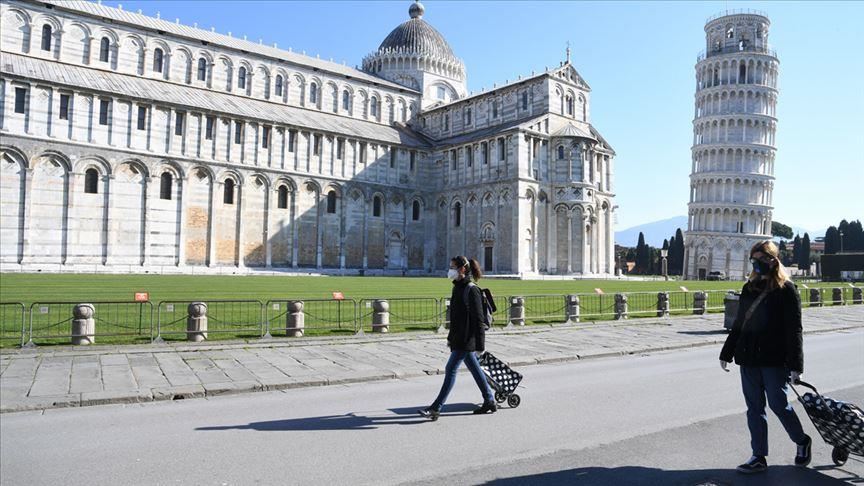ID :
562838
Thu, 04/16/2020 - 19:24
Auther :
Shortlink :
http://m.oananews.org//node/562838
The shortlink copeid
Italy: Relaxing lockdown draws mixed response

Booksellers see more risks than pros in reopening their stores, Lombardy pushes for restarting businesses
ROME
A few shops have opened in Italy following a relaxation of lockdown rules amid debates on how to handle the next phase of the coronavirus pandemic.
The Italian government as of Tuesday allowed some shops such as bookstores and children’s clothing outlets to reopen, but extended lockdown until May 3.
The decision drew a mixed response with some bookshop owners saying that restarting business activity posed more risks than opportunities.
Nearly 150 librarians wrote an open letter to the government explaining their decision to keep their doors shut.
“The job of a bookseller includes communicating face to face, a practice that – if not clearly regulated– creates evident sanitary risks,” they wrote.
“In addition, it’s a habit of whoever enters a bookstore to take, touch, check out a large number of books,” the letter added.
On the other hand, the country’s wealthy Lombardy region is leading efforts to reopen businesses as soon as possible, starting May 4.
The region accounts for about 20% of Italy’s economy and Milan, it’s largest city, is an international business hub. Lombardy is also the hardest-hit of Italy's regions, accounting for more than half of the over 21,600 deaths.
Business associations have repeatedly warned that blocking Italy’s economic engine would push the whole country into a black hole.
Lombardy’s Governor Attilio Fontana openly clashed with the government on Wednesday after saying that his administration was ready to start a gradual reopening in early May.
On Thursday, Fontana took a step back, saying he got in touch with Regional Affairs Minister Francesco Boccia, who ensured that a special “control room” will meet over the weekend to discuss a possible plan for the phase-2.
Globally, more than 2 million people have been infected by coronavirus, with the death toll exceeding 138,000, according to data compiled by Johns Hopkins University. Over 525,000 people have gone on to make a full recovery.





